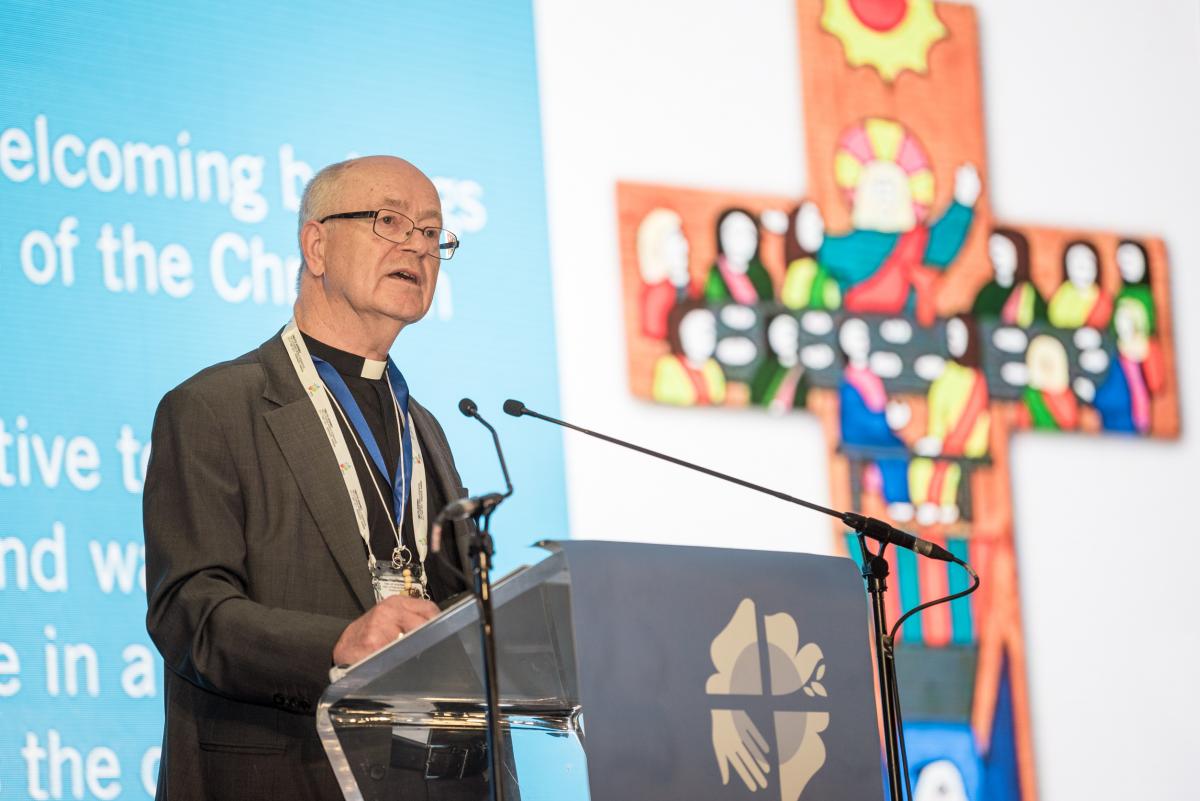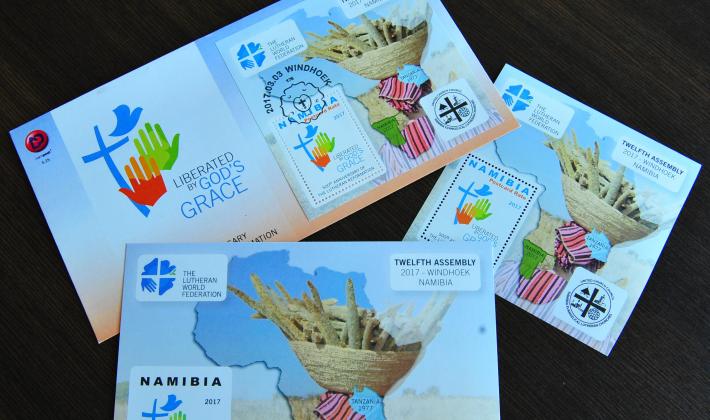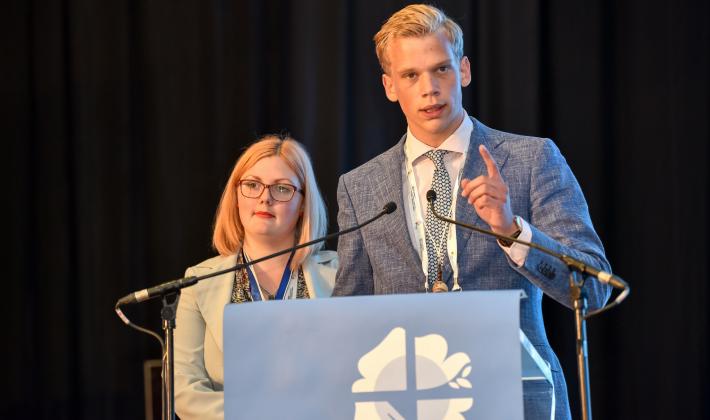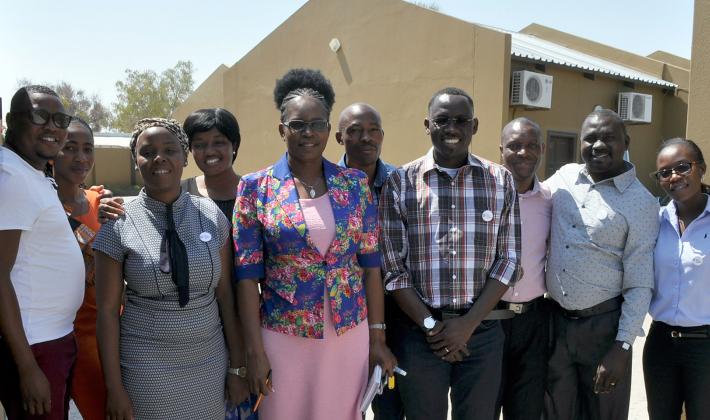
WINDHOEK, Namibia, 13 May 2017 - Norwegian theologian Rev. Dr Kjell Nordstokke today appealed to Lutherans from around the world gathered in Windhoek, Namibia, to unmask the inhuman practices of inequality that threaten to deprive large portions of the world’s population of a dignified life.
Addressing the Twelfth Assembly of The Lutheran World Federation (LWF) on the sub-theme, “Human Beings – Not for Sale,” Nordstokke said God’s liberating grace gives “every single human being” an inherent value, which will never be lost no matter “how much powers and principalities may seek to invalidate it.”
“Human beings – not for sale” is one of three sub-themes of the Twelfth LWF Assembly, which meets under the main theme “Liberated by God’s Grace”.
Nordstokke said inequality was on the rise not just between countries across the globe but “within countries” and has become a fundamental cause and dramatic consequence of issues dealing with work and unemployment, debt, forced labor and human trafficking, migration, corruption and non-inclusion. Referring to a recent study by the British aid agency, Oxfam, he noted that eight men in the world own the same wealth as the 3.6 billion people who make up the poorest half of humanity.
Vocation to serve others
He said Martin Luther brought a new understanding about the vocation to serve fellow human beings and promote common good. The works of mercy, according to the reformer, “are not to be performed within the confines of religious buildings or practices, but in everyday life for the sake of one’s neighbor,” Nordstokke emphasized.
Nordstokke said this assertion remains a key element in the Reformation heritage. It serves as a reminder that a church which has to be reformed all the time (ecclesia semper reformanda) is called to safeguard the concept that human beings count more than any structures including those that belong to the church.
“Do we convey the message of God’s liberating grace in a way that affirms human dignity and encourages the believers to use their talents serving one’s neighbor and promoting common good?” he asked. “Do we denounce policies and practices that value human beings conditioned by what matters in the world, such as money and social position, and not according to what we are and called to be in God’s eyes?”
He outlined the church’s important role of using its diaconal gifts, action and public advocacy to challenge the prevailing situation, whereby seven out of ten people live in a country in which inequality has risen in the last 30 years. “Our faith-based commitment drives us to question this ruling economic paradigm, to unmask its inhuman practices,” said Nordstokke, a professor of diakonia at Diakonhjemmet University College in Oslo.
Inclusive public space
Nordstokke argued that the “public mission” of the church must facilitate the creation of an inclusive public space that secures “equal access to common goods and political decision-making processes; safety, especially for the vulnerable; and meaningful participation of and interaction among all groups in society.”
He said the “economy” was far too important an issue to be left to economists alone, and cited how churches can involve themselves in developing alternative concepts of economy that do not focus on growth and profit. He hoped the Assembly would have the unique opportunity of learning about the gains and potential of the Basic Income Grant initiative being advocated by Namibian churches and civil society to alleviate poverty in the country.
Nordstokke, a former director of the LWF Department for Mission and Development, also asked churches in the LWF communion to reflect on how they could contribute to the implementation of the United Nations Agenda 2030 and its Sustainable Development Goals with the “aim of leaving no one behind.”
Two Assembly participants responded to Nordstokke’s keynote presentation: Agnieszka Godfrejów Tarnogórska, Evangelical Church of the Augsburg Confession in Poland and regional coordinator of LWF Women in Church and Society network in Central Eastern Europe; and Adamou Koumanda, representative of the World Service country program in Chad.
Discussions on the sub-themes continue in the village groups, and will generate input for the Twelfth Assembly Message.



